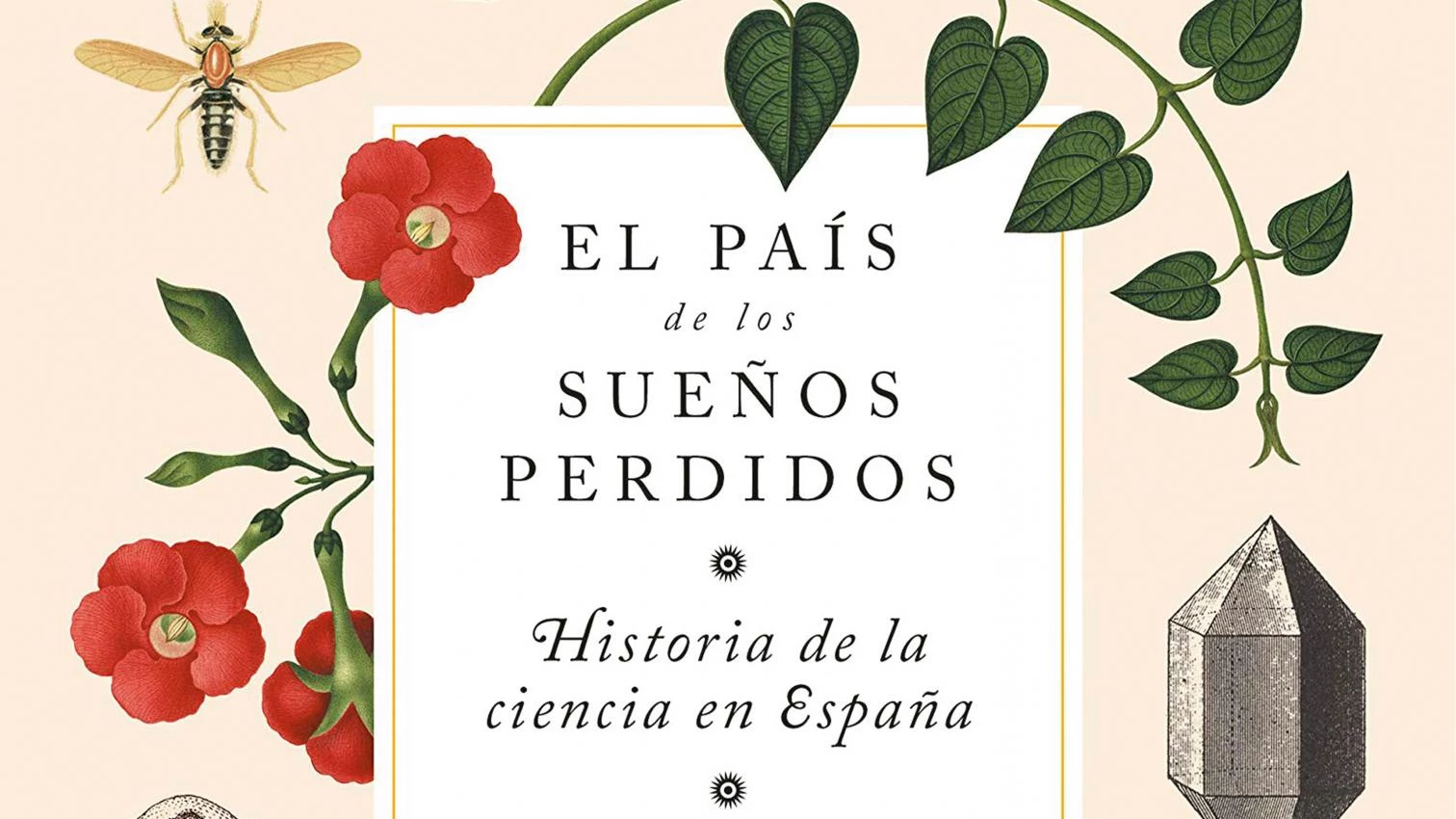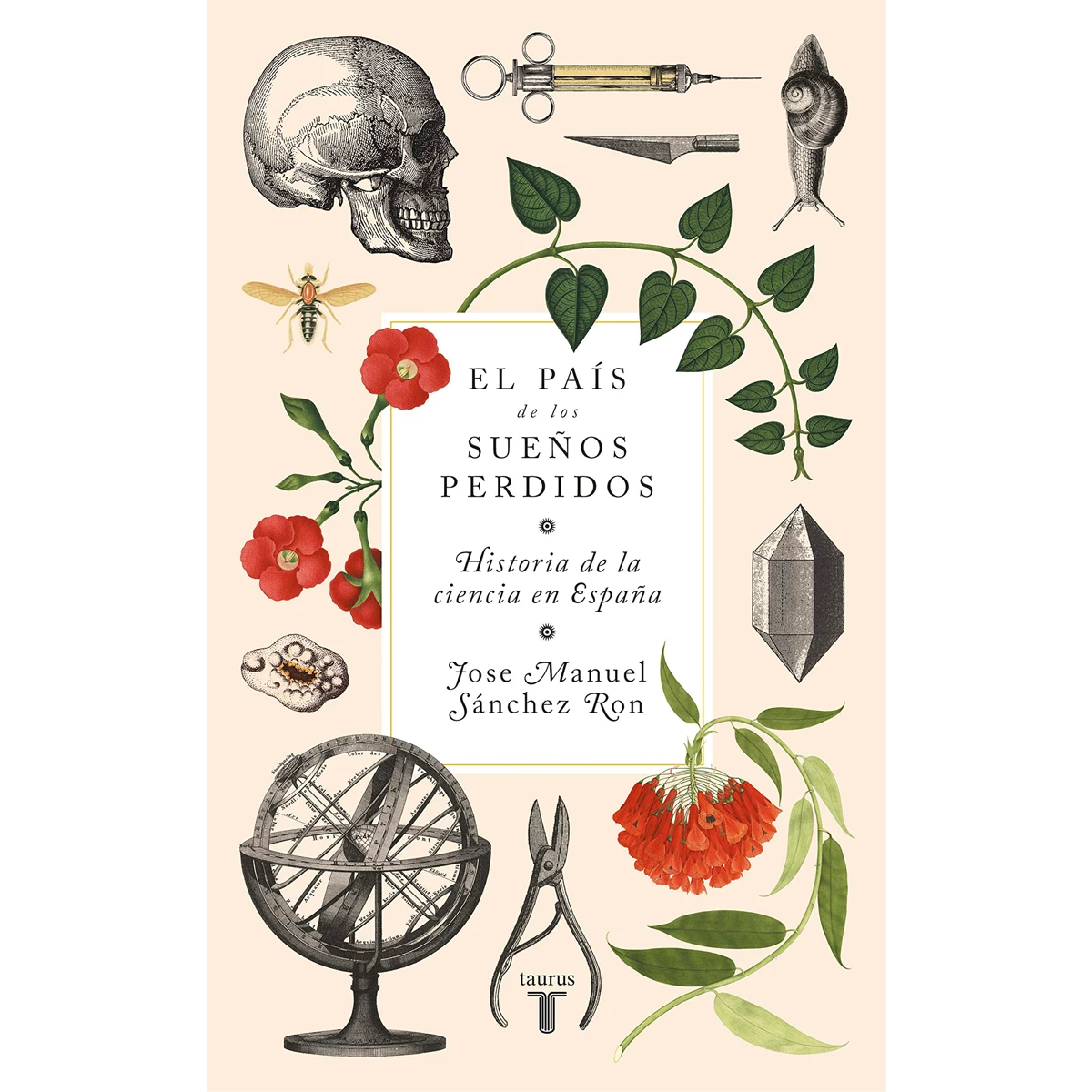
In his preface José Manuel Sánchez Ron recalls the bitter words that Nicolas Masson de Morvilliers had to say about Spain in the Encyclopédie (“Qu’a t-elle fait pour l’Europe?”) and though he claims not to wish to mediate in controversy, his monumental work on the history of science in our country is full of the melancholy suggested by his title (The Land of Broken Dreams). Unlike those who, since Menéndez Pelayo, have asserted Spain’s intellectual contribution, Sánchez Ron offers a narrative whose torrential dimension does not conceal shadows, disappointments, and failures.
From Isidore of Seville – whose Etymologiae are documented by means of many long quotes, as happens throughout the book so that voices of the past come to us intact –to Franco’s death, because science in democratic Spain is dealt with in the summary way called for by lack of perspective, Sánchez Ron tells his tale going from binoculars to the magnifying glass: the deeds most distant in time are described with their essential features, composing a landscape of figures contemplated from afar through telephoto lenses, while more recent events are recounted with extraordinary detail, presented to the reader with the hand glass of the author. The result is a dizzying zoom that transports us from broad medieval panoramas to close-ups of contemporary figures that seem to leap out of the screen, and after reading the book, one can look back, a bit in the manner of Saul Steinberg’s drawings of Manhattan extended through empty spaces reaching the West Coast and the Pacific beyond, tiny in the graphic and geographic distance.
To give an idea of the chronological pace, suffice it to say that just a third of the way through the book, the Institución Libre de Enseñanza already comes into the picture, so the other two thirds together cover but a century of Spanish life, the period 1875-1975. This painstaking focus on the more immediate does not preclude reconstructing nuggets like Alfonso X’s role in the production of texts, the astronomical corpus of knowledge in the ‘land of three cultures,’ or the architect Juan de Herrera’s founding of the Royal Academy of Mathematics in the Madrid of Philip II. The science of the Enlightenment is documented without hiding the limitations imposed by ecclesiastical censorship, and the chapter on America highlights the scientific expeditions, many of them botanical, without excluding one which takes on particular relevance these days, the Balmis Expedition, which brought the smallpox vaccine to Spanish America and the Philippines.
Author of biographies of the mathematician and playwright José Echegaray and the most important Spanish scientist, Santiago Ramón y Cajal, Sánchez Ron treats both with affection and erudition, as he does the physicist Blas Cabrera, the chemist Enrique Moles, the mathematician Julio Rey Pastor, or the engineer Leonardo Torres Quevedo. All are major figures of the first third of the Spanish 20th century, an age during which the history of science is inextricably tied to social history and political history. A short review cannot possibly do justice to the achievements of this ambitious intellectual adventure, which neither leaves out the frequent frustrations of those who dreamt of advancing science in Spain, nor passes up the opportunity to arouse in young generations the curiosity, passion, and scientific rigor without which Spain can hardly do anything for Europe and for itself.






